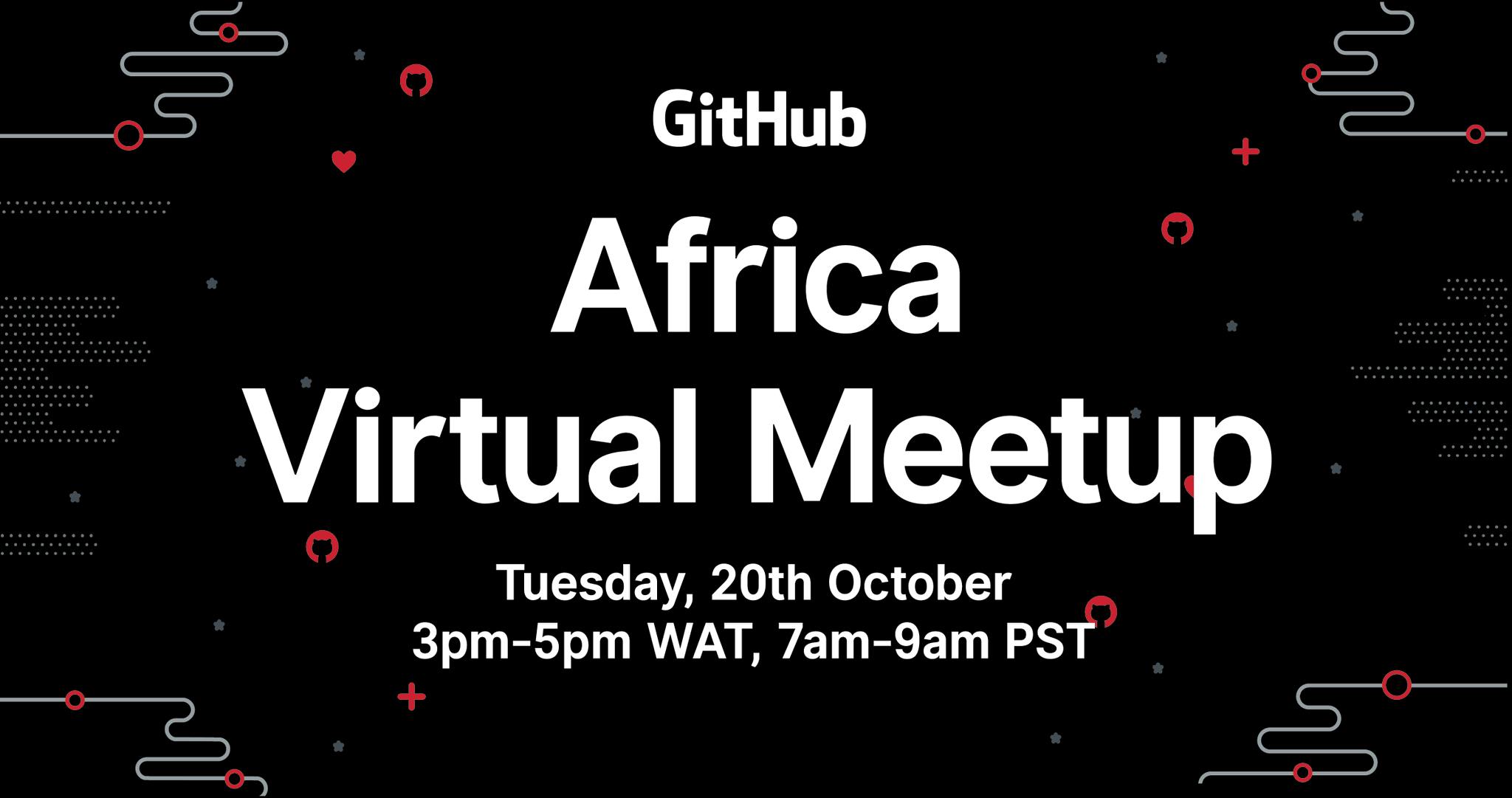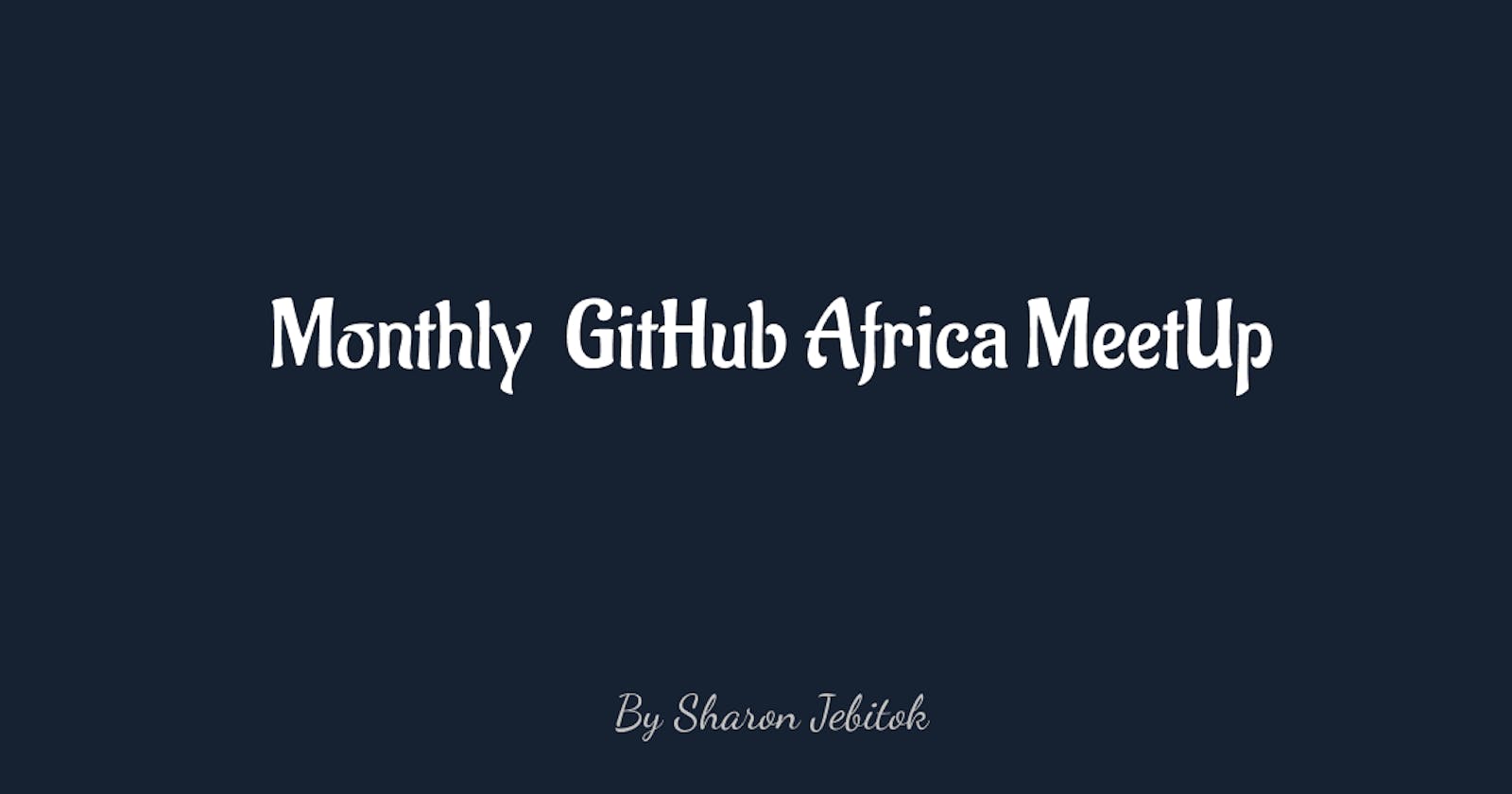GitHub just announced its second Africa Meetup with African techies that will be hosted on that day among them being Ruth Ikegah open-source advocate

Maybe you're wondering what the meetup is all about and if you should attend or not. If you're in the tech space it's a great chance to Meetup with fellow African techies and to hear opportunities and technologies present for us. Last month GitHub held its first monthly Africa meetup and I was lucky to attend the session. Here are some of the speakers and respective tech topics covered by them:-
CodeQL
Session facilitated by Xavier Corail from GitHub Security Lab
code the broader pattern to adapt to specific codebases and launch several CodeQL. Contribute to community queries and get paid. (open-source)
Quick GitHub Packages
Session facilitated by @unicodeveloper who is an open-source fanboy, PHP & Laravel community, and shares resources for beginners on his repo.
Building packages GitHub Packages
are Software Packages hosting services that allow you to host your software packages privately/publicly and use packages as dependencies in your project.
Why release code
Since everything one place:-
- using your fav package tools eg npm
- integration with GitHub actions, GitHub container registry i.e npm, Ruby, Java, .NET
Publishing a package
Access Token
- Go to GitHub select settings/tokens/new
- Select scope i.e repo/ write package/ read/ delete
- Give access token a name then copy token to a secure space Authenticate with GitHub
- Package client of choice eg npm then log in via npm using your GitHub username, password, and email
configure package client to work with the GitHub package on package.json file. You can Read More.
Vs Code for Remote Development
Session facilitated by [Lawrence Muthoga](twitter.com/larrygify who talked of development in the context of remote machine/ container and client tools linked to remote services/extensions that makes magic happen like:
Remote WSL (for linux)
Remote SSH Raspeberry Pi (Raspbian for vs code )
Remote containers development environment like Code SandBox which avoids impacting local machine config. It also doesn't require the installation of environments like Nodejs or PHP
Code Space allows you to work beyond PC. On your GitHub open Code on the browser and work on your online.
LiveShare extension that allows real-time collaboration
You can access related resources here!
Open-Source Terminilogies
Session by Samson Goddy co-founder of Open Source Community Africa and also terms himself as Commissioner of Open-source.
OS can be read, modified, and shared by others. It's design and code which is publicly accessible.
Contributing to open-source can be a rewarding way to learn, teach and build experience in just about any skill you can imagine
Why OS
- make an impact
- career growth
- people skills
- remote work experience
- paid opportunities like Outreachy
"Nobody did it because everybody thought somebody could do what anybody could have done"
Create a role
Either as Designer/ Developer/ Technical writer/ Engangement/ Product manager/ Translator/ User/ Donor/ QA & Tester/ Researcher
Getting started
- Find OS project to contribute to
- Join contributors
- Make a meaningful contribution (quality > quantity)
Contribute | Learn | Grow
OS Opportunities
Google Summer of Code, Outreachy, Google Season of Docs, Open-Source Friday, Collections, First Contributions, Up-for-grabs
Think of ways to use GitHub to give back to the community. Either by:- code | donation |Technical skills | design
Terraform with GitHub Actions
Session facilitated by Cobus Bernard from Cape Town, SA. This session was a whole new topic for me I've never dived in Cloud or microservices but this gave me insights. Here is what was shared:-
Infrastructure as code
create and deploy resources through code
- make infrastructure changes
- GitHub/ workflow Declarative "I tell you what to do " whereas Imperative, "I tell you what I need to operate"
Terraform AWS
creating AWS resources through GitHub actions that can run terraform to create resources in QA, lead, production, etc. commit to developing: build resources in production
Goals
make infrastructure changes repeatable and predictable
- release infrastructure changes using similar tools & code changes
- replicate the production environment in staging env Use multiple accounts i.e
- user data on development/test/Production
You can Learn more here!
Thank you for reading my article. With this, you'll realize that the Github Africa meetup covers all areas of tech and it's a resourceful session for us as developers. Don't miss the next meetup register here!
